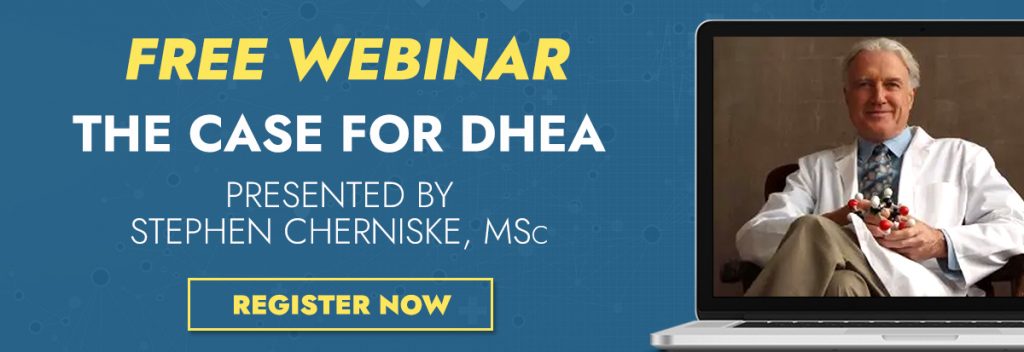“You want a what?”: A Story for Our Times
Imagine you’re house hunting and at last you’ve found what might be the perfect home. Like all home buyers, you are eager to see the kitchen. Mostly, you’re looking for quality appliances. When you arrive, everything looks great, with one glaring exception. There’s no refrigerator. There’s a gaping hole where the refrigerator should be. And when you ask the realtor, you’re astounded to hear him say, “Hmmm. You want a what?”
“A refrigerator,” you reply.
“What’s that?” he asks. You laugh nervously, because his question sounded sincere, and then you explain what a refrigerator is. “
Yeah, no,” he replies, “You don’t want one of those. They’re dangerous.”
“How are refrigerators dangerous?” you ask.
The realtor pauses for a few seconds, then replies, “They… um… they explode!”
This is what happens when a well-informed patient asks their doctor about DHEA. More than 2 million people have read one of Stephen Cherniske’s books and articles that describe why DHEA is an essential part of any healthcare plan. Millions more have seen him interviewed on national TV, or read about him in Time, Newsweek and Oprah. They understood Cherniske’s simple graphic showing that health is a see-saw of damage and repair, and how DHEA is the most important factor driving repair in every tissue of the human body. They were impressed with the author’s scientific credentials and the mountain of evidence published in biomedical journals.
But when they ask their doctor about this critically important factor that literally determines how fast they age, they are shocked to hear that many physicians have no real understanding of the hormone. Even worse, many doctors disregard the question, essentially saying “Yeah, no. You don’t want one of those. They’re dangerous.” And when asked exactly why DHEA is dangerous, they reply with something they heard 25 years ago that has been soundly debunked.
Join Stephen Cherniske for his upcoming webinar, The Case for DHEA, to learn more about this topic. He’ll review the metabolic model of aging and show how DHEA plays a key role in tissue repair, neuroprotection, metabolism, cardiovascular health, mood and memory.
Stephen Cherniske, MSc is a biochemist with more than 50 years of academic, clinical and research experience. He taught university clinical nutrition, directed the nation’s first FDA-licensed clinical lab specializing in nutrition and immunology, and served on the faculty of the American College of Sports Medicine. His book “The DHEA Breakthrough” was an international best-seller that helped launch the anti-aging movement worldwide. Cherniske is considered to be the chief architect of the metabolic model of aging – now the predominant model used in research protocols throughout the world.


